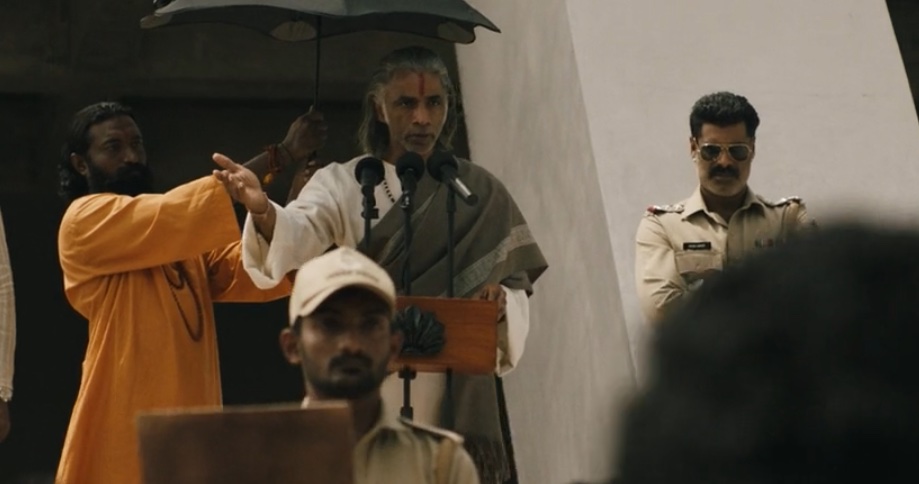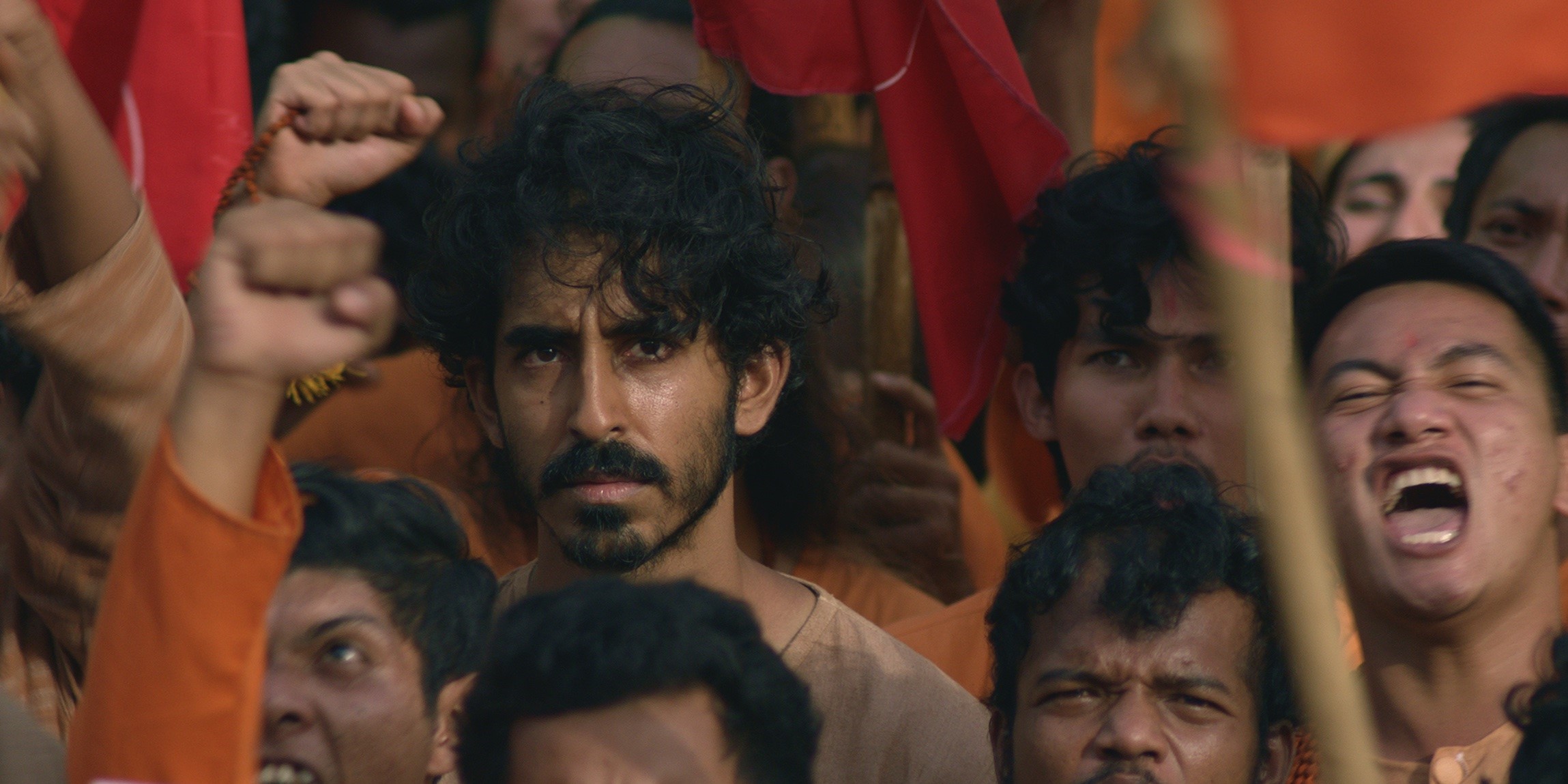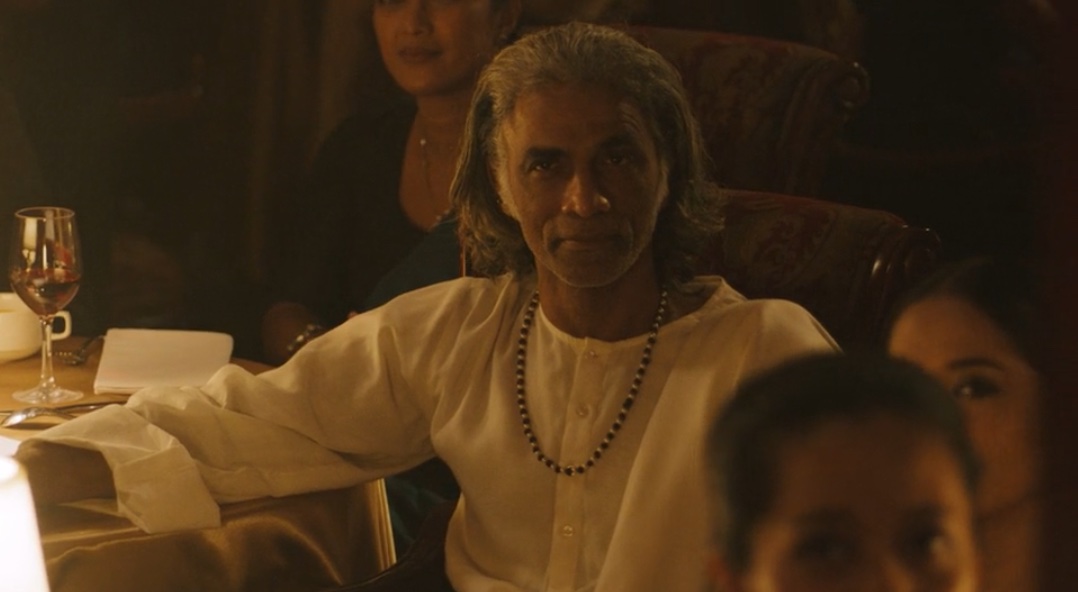In ‘Monkey Man,’ a man goes on a revenge-fueled ride that pits him against some of the most powerful people in the country. Dev Patel stars as Kid, who spends his nights getting paid to be beaten up in an underground fight club but has eyes on a much bigger prize. He desires to avenge his mother, who was brutally killed in front of him when he was just a child. However, as Kid walks down the path of revenge, he realizes that there is much more at stake than his personal issues. The problem exists on a much grander scale, and if something isn’t done, a lot more people will face the same fate as his mother and the many people who have been suffering through the same thing.
With each step Kid takes, the film walks deeper into something that reflects the reality of the country, making the story even more jarring for the audience. A lot of things feel eerily familiar to the current political landscape of India, and this is something that Dev Patel, who co-wrote and directed the film, had in mind while making it. SPOILERS AHEAD
Baba Shakti and Sovereign Party Reflect the Real Issues of the Country
‘Monkey Man’ is a work of fiction that germinated in the mind of Dev Patel ten years before it finally saw the light of day. The story with the mythological figure of Hanuman had been brewing in his mind, but he knew that whatever direction the project would take, it would be set up in the contemporary world, relating to the issues relevant to the people in today’s political and social climate. With this in mind, he brought in some things into the story that bear a passing resemblance to what’s currently going on in India. However, while the connections to real life may seem obvious, they are still fictional renderings.

One of the main villains of the story is a religious figure known as Baba Shakti, played by actor Makarand Deshpande. With his name literally meaning “power,” Baba Shakti justifies his name, wielding immense power over the people and, hence, over the political situation of the country by endorsing a certain politician from his favored political party, the Sovereign Party. Through Baba Shakti’s character, the story turns the audience’s attention towards the real-life religious figures who enjoy massive followings in different sections of India.
The country is not unfamiliar with the concept of godmen, a lot of whom have landed themselves in trouble with the law due to one or other scandal coming to light. It is also not a disputed fact that these figures may appear apolitical at first but generally lean towards the political parties that benefit their agenda. We see the same thing happening with Baba Shakti, who claims to be a man who comes from nothing and desires nothing but still razes villages to the ground to build his factories, in which he receives the support of corrupt cops and corrupt politicians.
While the figure of a deceitful godman may not have come across as problematic enough, the film really stirs the pot with the portrayal of the Sovereign Party, which is clearly a jibe at Bhartiya Janta Party (BJP), the current ruling party in India. Apart from the staunch religious feelings that the party manipulates in its favor, the Sovereign Party also appears to be indifferent to the issues affecting the masses, particularly the minority communities. To add salt to the wound, the film uses real archival footage where violence in the country is underlined. One might ignore the parallels with real life, but when real-life footage is presented in the movie, it is hard to ignore what the film is trying to say.

In a more tolerant climate, this presentation would have ruffled feathers, but it would have been, well, tolerated. A country ready to address its flaws and shortcomings is the one that moves forward, but things are a bit tricky in the current climate. Reportedly, it was due to this issue that Netflix, which had purchased the worldwide rights for the movie in 2021 for $30 million, dropped it entirely. The portrayal of the extremist forces in the movie felt too touchy for the streaming service and not worth the trouble it would certainly have stirred for them. Their concerns were not unfounded, as previously streaming services have faced public and political backlash for similar things. To prove their point, the film, which was supposed to be released in India on April 19, 2024, first had the release postponed and then entirely suspended. There is no confirmation, as of yet, of when the film will, if at all, be released in theatres in India.
It is assumed that Patel would have been asked to make some changes to the film to make it more acceptable, but the director didn’t want to pull any punches in his debut film. He confessed that while making the film, he was fully aware that “certain things in the film would be divisive,” but removing them would remove the core of the story, and it was not the film he wanted to make. It wouldn’t be ‘Monkey Man,’ then, and it would trump the entire purpose of why Patel wanted to make this film in the first place.
Read More: Monkey Man: Is Yatana a Real City in India?


You must be logged in to post a comment.